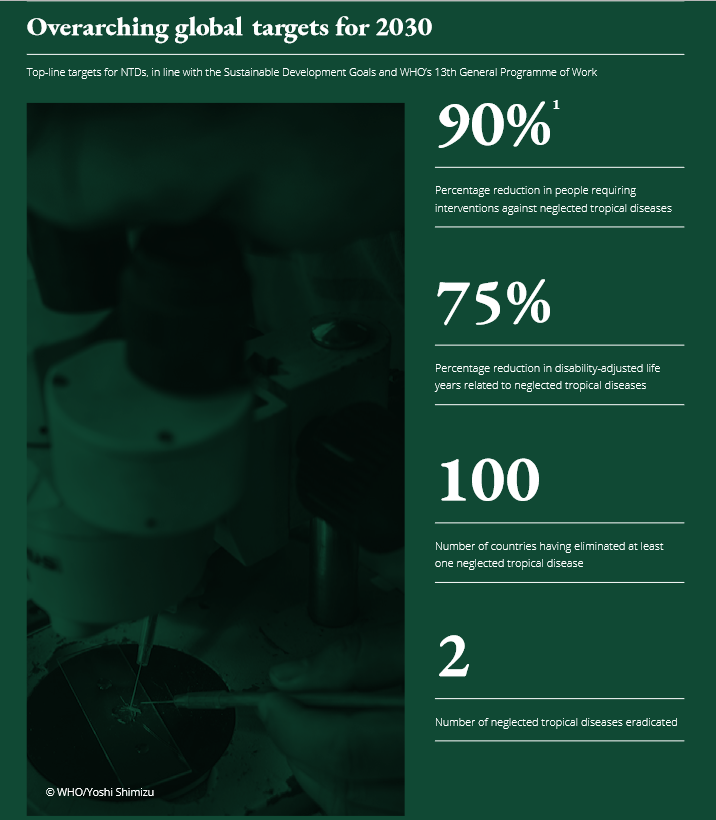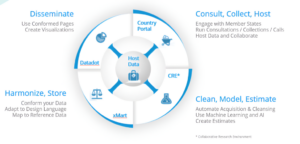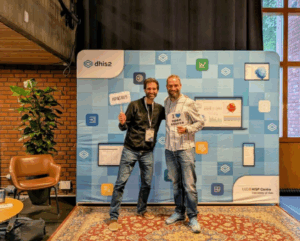One of this year’s Trifermed Social Impact on Health awards goes to Pedro Albajar Viñas, representing the WHO program for the control of Chagas disease. We review the work and impact of Dr. Albajar and the role played by the WHO and its Data Integrated Platform (WIDP) and some of the apps that we develop and maintain at EyeSeeTea.
The Trifermed awards recognize individuals and organizations that make significant contributions to healthcare, driving social responsibility and ethical practices within the sector. At this year’s event one of the awardees is a researcher we have worked with and admired for a long time. Dr. Albajar is a Spanish-Brazilian physician, researcher specializing in tropical medicine and Neglected Tropical Diseases at WHO and responsible for the control of Chagas disease at WHO. For more than two decades he has been fighting against this disease, which despite affecting millions of people worldwide, has been one of the great neglected diseases.
"Neglected diseases are indicators of limited or deteriorating planetary health. They are part of a vicious cycle, anchoring affected populations in poverty.”
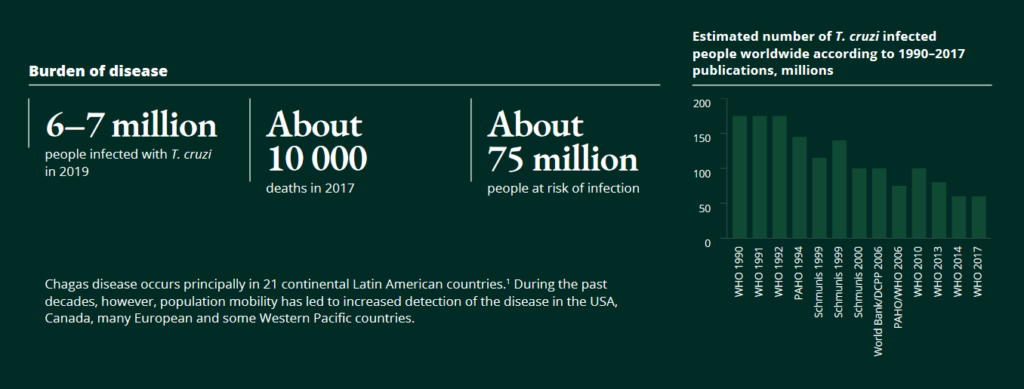
The fight against Chagas disease at WHO
Chagas disease, caused by a parasite, was included in the first list of neglected tropical diseases. A disease that causes those affected to face psychological barriers (fear, shame…), collective barriers (stigma, exclusion from the workplace…)…, thus reinforcing a vicious circle that anchors them in impoverishment.
It is estimated that worldwide there are more than seven million people with the infection, but the vast majority (around 90%) have not yet been diagnosed
"The paradox is that, with prevention, early diagnosis and treatment, and a life-long accompaniment of people, infection, disease and its complications could be avoided. Without treatment, one third of people have heart involvement and in one in ten, the digestive system, or neurological, or a mixture of all"
Pedro Albajar
The Chagas Disease Control Program at WHO began in 2008, after seeing the need to increase its visibility and networking in order to combat it. The Trifermed award recognizes that “the collective creation of the WHO Chagas disease control program has led to significant advances in diagnosis, treatment and prevention, impacting millions of lives worldwide. His commitment to improving global health through up-to-date strategic interventions is the cornerstone of Pere Albajar’s career. His holistic approach to healthcare emphasizes the need for equity and comprehensive strategies that include community engagement and cross-sector collaboration.”
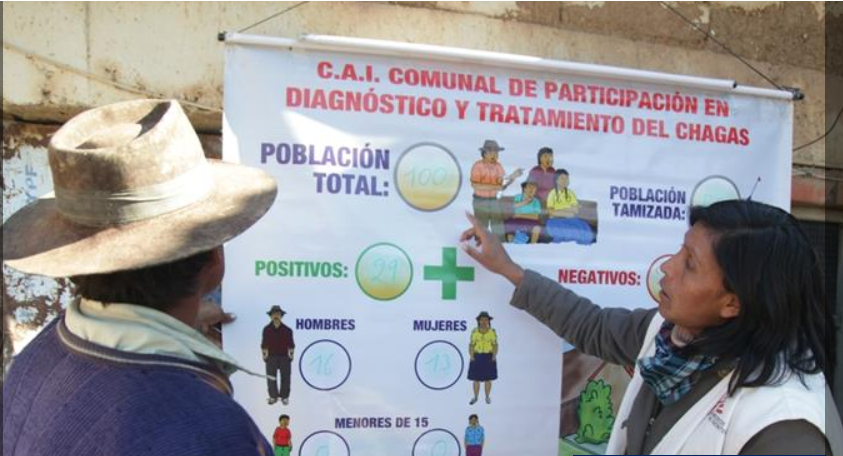
WHO Integrated Data Platform (WIDP) and Chagas networks consolidation
From the very beginning, the Chagas Disease Control Program has been committed to cooperation and interoperability. Network projects with public and private institutions and organizations in the fields of: public health, health systems, research, education, legislation and associations of affected people.
One of the tools to achieve this has been the Unified Data Platform (WIDP), which is now used by a variety of departments at the WHO and, as Dr. Albajar points out, “is the result of a pioneering open source big data project, which since 2011 has been progressively developed with the invaluable collaboration of the Polytechnic University of Catalonia, EyeSeeTea and several other institutions and organizations”. He adds that “its initial main objective was to break the epidemiological silence of people affected by Chagas disease and its design helped to organize and systematize the variables and sources of information for monitoring one of the most neglected tropical diseases”.
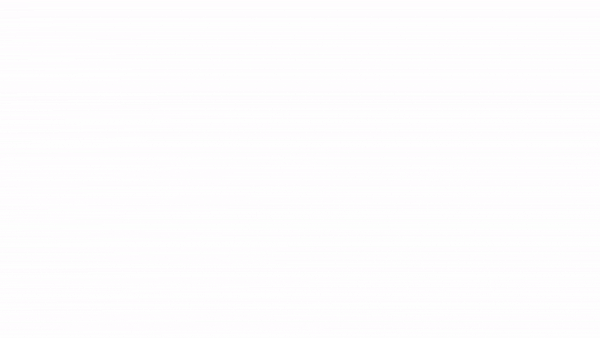
Thanks to WIDP, for the first time data collection:
- is done on a global scale;
with epidemiological comparability - gives priority to real data (on cases and routes of transmission of infection) over estimated data
- allowing monitoring in time and space
- allowing verification of the objectives of the WHO neglected tropical diseases roadmap 2021-2030
WIDP uses DHIS2, the world’s largest health information management system — an open source platform developed through global collaboration led by HISP UiO
Each country or institution can use the platform to enter their data using forms or in bulk using our Bulk Load app. For the latter, simply download an Excel template, update it with the data and upload the spreadsheet to the system. All this is done through a simple graphical interface. In this way, with the support of EyeSeeTea, different networks working on disease eradication have been able to send their data in a coordinated way.
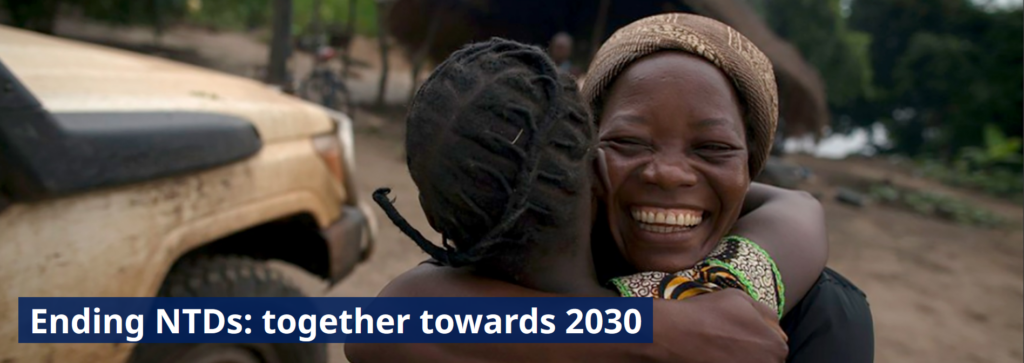
Looking to the future
Since 2019, Chagas disease has a world day (April 14) to promote that it ceases to be a “silent and silenced” disease. Ending the stigma surrounding this disease is one of the objectives of the WHO and one of the steps towards its eradication. Although there is still some way to go, thanks to the work of all the people and institutions that contribute to the WHO’s Chagas control program, we are a little closer. And thanks to the work of doctors like Pedro Albajar we hope that soon Chagas disease will be a thing of the past.
By awarding this prize, Trifermed not only recognizes the progress of this program, but also contributes to making visible and reinforcing the importance of cooperation against diseases that affect the most vulnerable populations.
We would like to end with some moving words from Pedro Albajar: “Nothing is done. Nothing is given. Nothing has been simple, easy, fast, cheap… Everything is the result of a self-sacrificing and sustained effort. Yes, we need to continue working to place the new instruments at the service of the human being, or to place the human being in its full conception – we are planet, truly at the center. And yes, we need to continue to meet the challenge of creating new networks and increasing human interoperability, listening, co-creating, implementing and assessing costs, impacts and added values together…. Yes. We firmly believe that each and every one of us, in our site, work, task…., can help rewrite this story…, for the sake and possibility of a healthy future for each individual, and for all of us, collectively, as humanity, in relation to our planet…”
